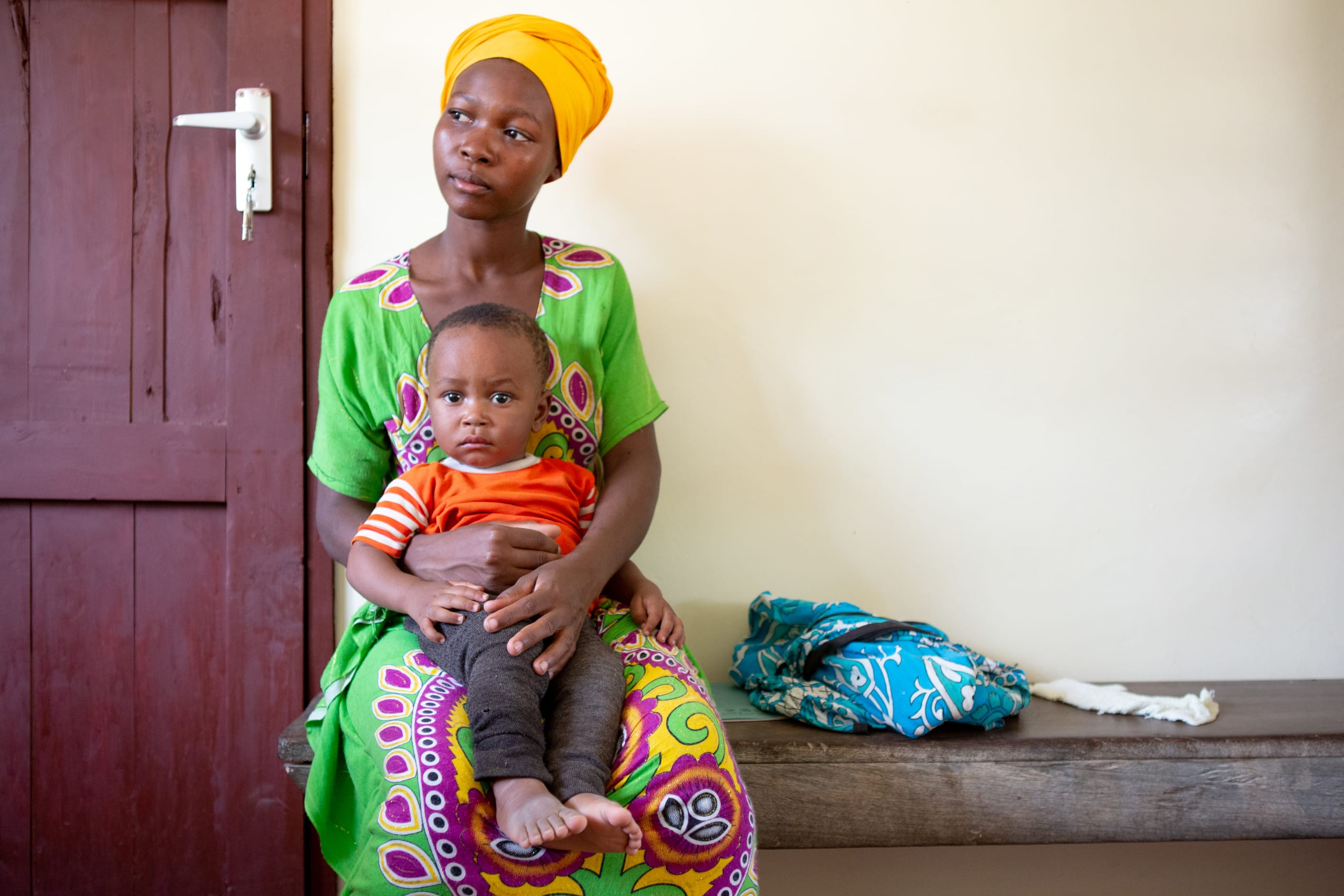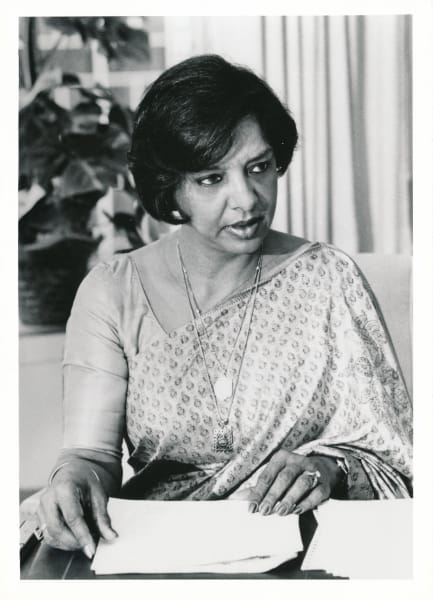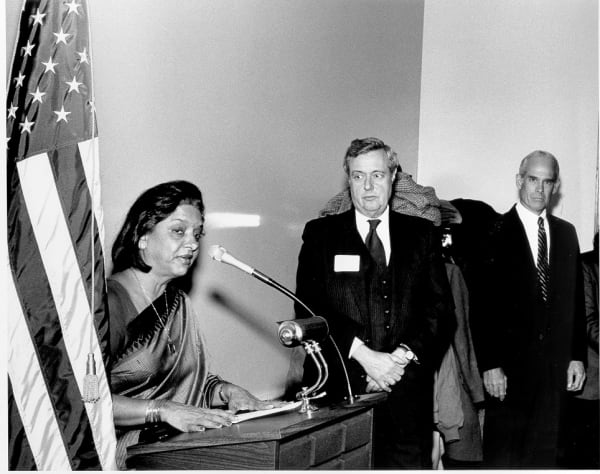PAI Provides Outside Witness Testimony for the U.S. Senate Committee on Appropriations

 The PAI board of directors and staff mourn the loss of Dr. Nafis Sadik, a forceful and visionary leader who died on August 14 in New York City at the age of 92. Throughout her life and career, Dr. Sadik sought to elevate the status of women and their well-being by improving the reproductive and sexual health of all women, regardless of social or economic context.
The PAI board of directors and staff mourn the loss of Dr. Nafis Sadik, a forceful and visionary leader who died on August 14 in New York City at the age of 92. Throughout her life and career, Dr. Sadik sought to elevate the status of women and their well-being by improving the reproductive and sexual health of all women, regardless of social or economic context.
Upon her appointment as executive director of the United Nations Population Fund (UNFPA) in 1987, Dr. Sadik became the first women in the history of the United Nations (U.N.) to lead one of its major voluntarily funded programs and one of the highest ranking women in the U.N. system as an under-secretary-general. PAI had the honor of working closely with Dr. Sadik during her long leadership tenure at UNFPA. After her retirement from the U.N. in 2000, she became an active member of the PAI board, offering insightful and valuable advice to the PAI staff. She was a board member emeritus at the time of her death.
Dr. Sadik began her professional life as a physician practicing obstetrics and gynecology with the army and in rural communities in Pakistan, which culminated in her appointment as director-general of Pakistan’s Central Family Planning Council in the late 1960s.
At a memorial service held at U.N. headquarters on September 1, Alex Marshall, Dr. Sadik’s longtime speechwriter at UNFPA, recounted what might have been her “origin story” in his moving tribute made on behalf of her former colleagues at UNFPA:
“She started her professional life as an OB-GYN on an army post. She was appalled to see how the soldiers’ wives lived: thin, anemic, worn out by childbirth. And they couldn’t do anything about it. They had no idea they could choose another way to live. So, this is what she did. I only have her word for this, but you can see it happening — she, in her 20s, not long out of medical school, went to the commanding officer, not her immediate superior but the big boss, the colonel in command of the whole cantonment and everything that moved within it. She told him about the women she served. And she told him that he needed to see to it that his men used condoms. Exactly. And that sums up the way she was, all her life. She would go to the top, to the very top, and speak up for women, ordinary, poor, dispossessed women. She would say the unsayable, speak the truth out loud and bring the invisible into the light.”
Dr. Sadik joined UNFPA, the U.N.’s lead agency for advancing sexual and reproductive health and rights and improving access to contraception, as a technical advisor in 1971 and quickly rose to become chief of its program division in 1973. From 1982 to 1987, she served as assistant executive director.

U.N. Secretary-General Javier Pérez de Cuéllar appointed Dr. Sadik as UNFPA’s executive director in 1987 after the sudden and unexpected death of her predecessor Rafael Salas while he was in Washington meeting with Reagan administration officials and members of Congress on a pilgrimage to restore the U.S. government’s voluntary contribution to UNFPA. From UNFPA’s founding in 1969, the United States had been UNFPA’s largest bilateral donor until concerns about UNFPA’s assistance to China — where reports of human rights abuses resulting from the government’s zealous implementation of its infamous “one-child” policy — began to surface in the early 1980s, leading to the withdrawal of the entire U.S. contribution of $36 million in 1985.
One of Dr. Sadik’s first tasks as the new executive director was to shore up UNFPA’s finances. A recent article in the journal “International Affairs” used the tumultuous relationship between UNFPA and the U.S. government during Republican administrations as a case study for how multilateral organizations can effectively respond to political shocks and existential threats posed by funding cuts. Over the following 10 years, Dr. Sadik led the development of the fundraising strategy that resulted in a doubling of contributions from other bilateral donors. The article’s author concluded that this diversification of resources after devastating U.S. funding cuts was critical in the growth and development of UNFPA throughout the 1990s and helped to build its resilience when faced with later reductions in funding. Over Dr. Sadik’s 13-year tenure, UNFPA grew to a staff of around 800 with an annual budget of between $300 million and $350 million.
As recounted in great detail in multi-columned obituaries in the Washington Post and New York Times, Dr. Sadik’s signature diplomatic achievement was forging a consensus among 179 U.N. member states at the 1994 International Conference on Population and Development (ICPD) in Cairo — despite vigorous opposition from the Holy See and its conservative allies — on a landmark agreement that placed the discussion of population dynamics and family planning within an overarching ethical and policy framework of broader sexual and reproductive health and rights. As current UNFPA Executive Director Natalia Kanem noted in a statement on her passing, “The ICPD Programme of Action stands as a lasting monument to Dr. Sadik’s determination, courage and conviction. Nearly three decades later, it remains our roadmap to achieve a world of reproductive rights and choices for all.”
As the 30th anniversary of ICPD approaches, we look forward to building upon the progress that has been achieved since 1994. We salute you, Dr. Sadik, and your lifetime of service to women and girls around the world and treasure the memory of PAI’s long and productive association with you. Rest in peace, good doctor.
We are fighting back against the onslaught of harmful policies that discard reproductive rights.
Stay informed about the issues impacting sexual and reproductive health and rights.
